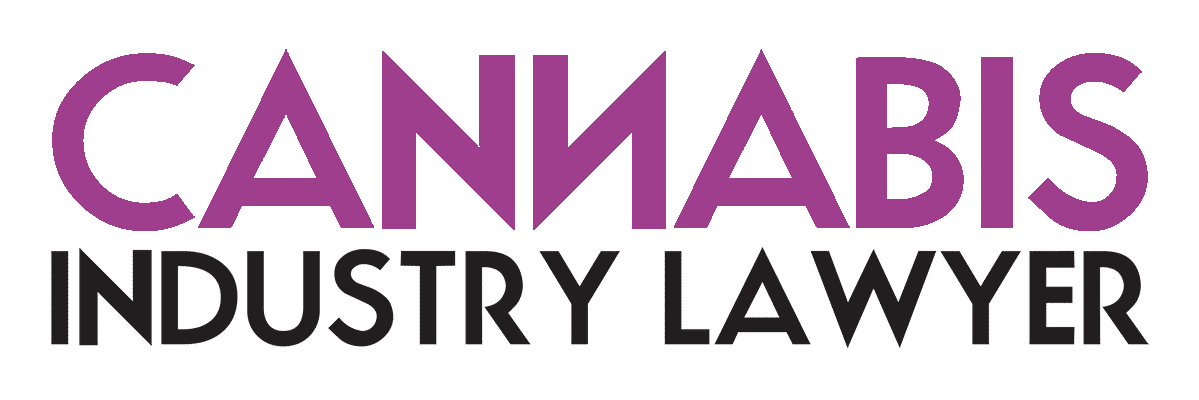By Thomas Howard. He has over 10 years of experience in corporate and cannabis laws nationwide.
In New Jersey, the cannabis industry is blossoming with opportunities for entrepreneurs looking to establish a foothold in this lucrative market. But, navigating the complex landscape of regulations, licensing, and competition can be daunting. Fear not, this comprehensive guide on how to get a cannabis license in New Jersey will provide you with the knowledge and insights needed to successfully obtain a cannabis license and operate a thriving business in this booming sector.
Understanding New Jersey’s Cannabis Market
New Jersey’s cannabis market offers immense growth potential, with both medical and recreational cannabis now legalized, paving the way for a myriad of legal cannabis business operators to emerge. Recognizing the challenges and opportunities distinctive to this market, such as the regulatory landscape, competition, and consumer demographics, is fundamental.
Medical & Recreational Cannabis Regulations
Medical marijuana in New Jersey, also known as medical cannabis, is regulated by the Department of Health and is accessible only to those with qualifying medical conditions, whereas recreational cannabis is regulated by the Cannabis Regulatory Commission and is available to adults aged 21 years and older. The licensing, regulations, and market potential for recreational cannabis are significantly greater than those for medical cannabis, making it an attractive option for aspiring entrepreneurs. Yet, it’s worth noting that the recreational sector also presents fiercer competition.
The Role of the Cannabis Regulatory Commission
New Jersey’s Cannabis Regulatory, Enforcement Assistance, and Marketplace Modernization (CREAMM)Act allows for the legal sale and use of cannabis and cannabis products for residents 21 years and older. The Cannabis Regulatory Commission plays a pivotal role in overseeing licensing, regulations, and enforcement in New Jersey’s cannabis industry. They are responsible for:
- Establishing rules and regulations governing the sale and purchase of cannabis
- Managing the state’s medicinal cannabis program
- Providing guidance for employers on workplace policies related to cannabis
For a business owner, comprehending and adhering to the stipulated regulations by the commission is vital for the business’s survival and prosperity.
Types of Cannabis Licenses in New Jersey
New Jersey offers six types of cannabis licenses, catering to various aspects of the industry:
- Cultivator
- Processor
- Wholesaler
- Distributor
- Retailer
- Delivery
Each license type serves a unique role in the cannabis supply chain, from cultivation to sale. Grasping the unique requirements, limitations, and opportunities of each license type is key to charting the optimal course for your cannabis venture.
Cultivator License
A Cultivator License, or Class 1 Cannabis Grower License, permits the growing or cultivation of cannabis for sale to other businesses, but not to direct customers. Holders of this license are authorized to move their product. Qualified recipients can safely receive these products. The number of available Cultivator Licenses is limited to 37 until February 22, 2023, making it a highly competitive market.
To secure a Cultivator License, applicants are required to exhibit robust financial resources, commercial cannabis production skills, and submit a detailed and organized application.
Processor License
The Processor License, or Class 2 Cannabis Processor License, allows businesses to engage in the following activities:
- Processing and manufacturing cannabis products for sale to other licensed businesses
- Extracting cannabinoids
- Infusing products with cannabis
- Packaging and labeling cannabis products for distribution
Owning a Processor License can be lucrative, especially for businesses that create high-demand derivative products from extracted oil.
Wholesaler License
Holding a Class 3 Cannabis Wholesaler License enables businesses to:
- Acquire, store, and transport cannabis products to retailers
- Play a crucial role in the logistics and supply chain of the cannabis industry
- Ensure that retailers have a steady supply of products to meet consumer demand
However, wholesalers cannot sell directly to customers.
Distributor License
A Distributor License, or Class 4 Cannabis Distributor License, permits the transportation and temporary storage of cannabis between licensed establishments. This license type serves as a bridge between various cannabis businesses, ensuring the smooth flow of inventory within the state. However, businesses possessing a Distributor License cannot acquire wholesale cannabis from cultivators, manufacturers, or wholesalers, limiting their profit potential.
Retailer License
The Retailer License, or Class 5 Cannabis Retailer License, allows businesses to:
- Purchase and sell cannabis, cannabis products, or paraphernalia at a specified location
- Purchase from a licensed manufacturer or wholesaler
- Sell directly to consumers on site
As the face of the cannabis industry, retailers play a vital role in educating consumers on responsible cannabis use and ensuring their satisfaction with the products and services provided.
Delivery License
The Delivery License, or Class 6 Cannabis Delivery License, permits businesses to serve as a courier for a licensed cannabis retailer and accept orders directly from consumers. This license type offers a convenient way for customers to obtain cannabis products without visiting a physical store.
As the demand for delivery services continues to rise, businesses with a Delivery License can capitalize on this growing market trend.
How to Get a Cannabis License in New Jersey?
Once you’ve determined the type of cannabis business license that best suits your business goals, the next step is to prepare a comprehensive cannabis license application. This process involves:
- Developing a strong business plan
- Finding a suitable location
- Ensuring you meet all the necessary requirements and criteria set forth by the New Jersey Cannabis Regulatory Commission.
License applicants shall review and comply with the requirements for license applicants and license holders in N.J.S.A. 24:6I-31 through 56 and N.J.A.C. 17:30, as applicable, including but not limited to:
- Qualification requirements for Diversely Owned businesses at N.J.A.C. 17:30-6.4;
- Qualification requirements for Impact Zone Businesses at N.J.A.C. 17:30-6.5;
- Qualification requirements for Social Equity Businesses atN.J.A.C. 17:30-6.6;
- Qualification requirements for Microbusinesses at N.J.A.C. 17:30-6.7;
- Qualification requirements for conditional license holders at N.J.A.C. 17:30-7.4;
- Qualification for requirements for annual license holders at N.J.A.C. 17:30-7.11;
- Criminal history background check requirements at N.J.A.C. 17:30-7.12.
Keep in mind that the New Jersey Cannabis Regulatory Commission has established a definitive measure for each type of cannabis license, with each criterion corresponding to a maximum number of points that can be earned on an application. For a conditional license application, the mandatory scored measures include:
- Business Plan and Management Profile (40 points)
- Regulatory Compliance Plan (50 points)
- Liability Insurance Plan (10 points)
Business Plan Development
A meticulously developed business plan should address key aspects such as:
- Location
- Funding
- Inventory
- Staffing
- Diversity and equity plans
- Marketing
- Security
- Technology
- Environmental/community impact
This plan lays the foundation for a thriving cannabis venture, including the establishment of a cannabis dispensary by a legal cannabis business operator.
Besides, extensive market research and comprehension of your target audience’s distinct needs can enable you to customize your products and services to satisfy consumer demands, providing a competitive advantage.
Finding the Right Location
Choosing an apt location is pivotal to the success of your cannabis business. You’ll want to find a municipality-approved location that aligns with your business plan, budget, and zoning requirements. Additionally, consider factors such as:
- Foot traffic
- Parking availability
- The number of competing businesses in the area
- Potential renovation costs
Remember, location can make or break your business, so choose wisely.
Financing Your Cannabis Business
With a solid business plan and location in place, the next step is to secure funding for your cannabis venture. This includes estimating costs, such as:
- application and licensing fees
- real estate
- employee salaries
- professional fees
- security expenses
Estimating Costs
Establishing a cannabis business in New Jersey can be an expensive venture, with cost estimates varying from several hundred thousand to a few million dollars. To be fully prepared for these costs, it’s important to dissect the expenses tied to starting a cannabis business, which includes:
- Application and licensing fees
- Real estate
- Employee salaries
- Professional fees
- Security costs
Having a clear understanding of your financial requirements will help you secure the necessary funding and set realistic expectations for your business’s growth and profitability.
Navigating the Application Process
Under the new rules or the Final Notice of Application Acceptance, Social Equity applicants will be given priority applications and exclusive access to licenses for Wholesaler, Distributor, and Delivery service class licenses.
Applying for a cannabis license in New Jersey can be an intricate and time-consuming process. It’s crucial to understand the requirements, criteria, and differences between conditional and permanent licenses to ensure your application is successful.
Acquainting yourself with the application procedures and staying abreast of any regulatory shifts will enhance your likelihood of securing a New Jersey cannabis license and successfully managing a cannabis business in New Jersey.
Ensuring Compliance with Regulations
Running a cannabis business in New Jersey necessitates rigorous compliance with a range of regulations and guidelines. Some key requirements include:
- Ensuring compliance with state and local laws
- Implementing security measures
- Adhering to purchase limits
- Completing Metric training
These measures are essential for maintaining your cannabis license and avoiding potential fines, penalties, or loss of licensure.
Security Measures
Enforcing the necessary security measures for your cannabis business is pivotal to complying with New Jersey’s cannabis regulations. This includes:
- Installing alarms
- Monitoring systems
- Access control
- Implementing protocols to safeguard your cannabis inventory, employees, and customers
By taking the necessary precautions, you’ll not only ensure the safety and security of your business but also demonstrate your commitment to operating a responsible and law-abiding cannabis establishment.
Application Timeline
| December 15, 2021 – 9 a.m. ET |
|
| March 15, 2022 – 9 a.m. ET |
|
| September 27, 2023 – 9 a.m. ET: For Social Equity Businesses Only |
|
| December 27, 2023– 9 a.m. ET: For Diversely Owned Businesses & Social Equity Businesses. |
|
| March 27, 2024 – 9 a.m. ET: For all other applicants |
|
Summary
In conclusion, obtaining a cannabis license in New Jersey requires thorough planning, dedication, and a clear understanding of the state’s regulations and industry landscape. By following this comprehensive guide, aspiring cannabis entrepreneurs can navigate the complexities of the licensing process, establish a successful business, and contribute to the booming cannabis market in New Jersey. With determination, hard work, and the right resources, the path to becoming a thriving cannabis business owner in New Jersey is within reach.
Frequently Asked Questions
How much is a cannabis license in NJ?
A Retailer License for cannabis in New Jersey requires an application fee of $1,000 and an initial license fee of $20,000 per dispensary location.
How much does a dispensary owner make in NJ?
Dispensary owners in NJ can expect to make substantial incomes, ranging from $200,000 to $1 million annually, after their businesses have been moved to schedule III.
What is a conditional license for cannabis in NJ?
A New Jersey Conditional Cannabis License is a temporary license allowing conditional license holders to provide the needed documentation or requirements and prove their capability of actually operating the cannabis business.
How much does it cost to open a dispensary in New Jersey?
Opening a dispensary in New Jersey can range from $250,000 to $2,000,000, depending on the location and license type. A micro business dispensary may be cheaper than the projected costs.
About the Author
Tom Howard, Cannabis Industry Lawyer and Consultant. Mr. Howard has practiced commercial law since 2008 when he graduated law school and got his Series 7 & 66 Securities licenses. He pivoted to practicing litigation for financial institutions before helping cannabis teams form, capitalized and get licensed. He has concentrated in the cannabis business since Illinois legalized in 2019. He won licenses for clients in Illinois, Connecticut, New Jersey, New Mexico, Massachusetts, Missouri and has gotten into lotteries in Ohio, Maryland and Maine. He became a Certified Ganjier in 2021. He chairs the ISBA’s section council for Cannabis Law in 2023.





